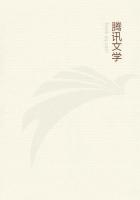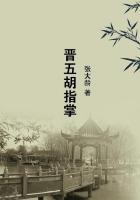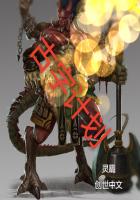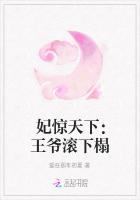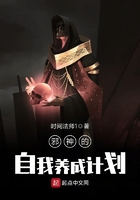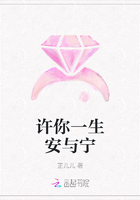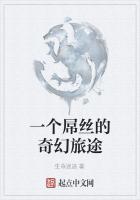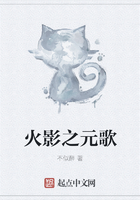"If your Uncle Henry has learned at last that ginseng is a salable article he should know something about the price also. Will you tell me what he said, and how you came to think of gathering roots for the market?"
"There were men talking beneath the trees one Sunday afternoon about old times and hunting deer, and they spoke of people who made money long ago gathering roots and barks, and they mentioned one man who lived by it yet."
"Was his name Langston?"
"Yes, I remember because I liked the name. I was so eager to earn something, and I can't leave here just now because Aunt Molly is very ill, so the thought came that possibly I could gather stuff worth money, after my work was finished. I went out and asked questions.
They said nothing brought enough to make it pay any one, except this ginseng plant, and the Langston man almost had stripped the country. Then uncle said he used to get stuff here, and he might have got some of that. I asked what it was like, so they told me and Ihunted until I found that, and it seemed a quantity to me. Of course I didn't know it had to be dried. Uncle took a root I dug to a store, and they told him that it wasn't much used any more, but they would give him fifty cents a pound for it. What MAKES you think you can get five dollars?"
"With your permission," said the Harvester.
He seated himself on the log, drew from his pocket an old pamphlet, and spreading it before her, ran a pencil along the line of a list of schedule prices for common drug roots and herbs. Because he understood, his eyes were very bright, and his voice a trifle crisp. A latent anger springing in his breast was a good curb for his emotions. He was closely acquainted with all of the druggists of Onabasha, and he knew that not one of them had offered less than standard prices for ginseng.
"The reason I think so," he said gently, "is because growing it is the largest part of my occupation, and it was a staple with my father before me. I am David Langston, of whom you heard those men speak. Since I was a very small boy I have lived by collecting herbs and roots, and I get more for ginseng than anything else. Very early I tired of hunting other people's woods for herbs, so I began transplanting them to my own. I moved that bed out there seven years ago. What you found has grown since from roots I overlooked and seeds that fell at that time. Now do you think I am enough of an authority to trust my word on the subject?"
There was not a change of expression on her white face.
"You surely should know," she said wearily, "and you could have no possible object in deceiving me. Please go on."
"Any country boy or girl can find ginseng, gather, wash, and dry it, and get five dollars a pound. I can return yours to-morrow and you can cure and take it to a druggist I will name you, and sell for that. But if you will allow me to make a suggestion, you can get more. Your roots are now on the trays of an evaporating house. They will dry to the proper degree desired by the trade, so that they will not lose an extra ounce in weight, and if I send them with my stuff to big wholesale houses I deal with, they will be graded with the finest wild ginseng. It is worth more than the cultivated and you will get closer eight dollars a pound for it than five. There is some speculation in it, and the market fluctuates: but, as a rule, I sell for the highest price the drug brings, and, at times when the season is very dry, I set my own prices. Shall I return yours or may I cure and sell it, and bring you the money?"
"How much trouble would that make you?"
"None. The work of digging and washing is already finished. All that remains is to weigh it and make a memorandum of the amount when I sell. I should very much like to do it. It would be a comfort to see the money go into your hands. If you are afraid to trust me, I will give you the names of several people you can ask concerning me the next time you go to the city."
She looked at him steadily.
"Never mind that," she said. "But why do you offer to do it for a stranger? It must be some trouble, no matter how small you represent it to be."
"Perhaps I am going to pay you eight and sell for ten."
"I don't think you can. Five sounds fabulous to me.
I can't believe that. If you wanted to make money you needn't have told me you took it. I never would have known. That isn't your reason!"
"Possibly I would like to atone for those tears Icaused," said the Harvester.
"Don't think of that! They are of no consequence to any one. You needn't do anything for me on that account."
"Don't search for a reason," said the Harvester, in his gentlest tones. "Forget that feature of the case.
Say I'm peculiar, and allow me to do it because it would be a pleasure. In close two weeks I will bring you the money. Is it a bargain?"
"Yes, if you care to make it."
"I care very much. We will call that settled."
"I wish I could tell you what it will mean to me," said the Girl.
"If you only would," plead the Harvester.
" I must not burden a stranger with my troubles."
"But if it would make the stranger so happy!"
"That isn't possible. I must face life and bear what it brings me alone."
"Not unless you choose," said the Harvester. "That is, if you will pardon me, a narrow view of life. It cuts other people out of the joy of service. If you can't tell me, would you trust a very lovely and gentle woman Icould bring to you?"
"No more than you. It is my affair; I must work it out myself."
"I am mighty sorry," said the Harvester. "I believe you err in that decision. Think it over a day or so, and see if two heads are not better than one. You will realize when this ginseng matter is settled that you profited by trusting me. The same will hold good along other lines, if you only can bring yourself to think so.
At any rate, try. Telling a trouble makes it lighter.
Sympathy should help, if nothing can be done. And as for money, I can show you how to earn sums at least worth your time, if you have nothing else you want to do."
The Girl bent toward him.


